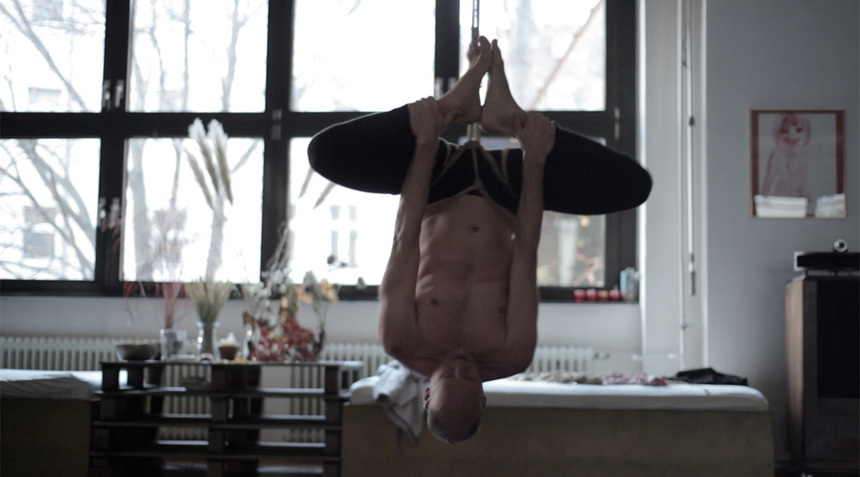Black Nights 2016 Review: VIOLENTLY HAPPY, Theatre of Intimacy and Pain

Most of us spend our lives trying to avoid pain. Whether it be physical or emotional, our bodily instinct (at least for physical pain) seeks to keep us out of harm's way. Emotional pain is harder to avoid even though we try. So what does it mean when some people seek out pain, because it gives them pleasure? How can physical pain become a means of expression and artistry? In Violently Happy, director Paula Calvo films a community of like-minded people who seek out pain in their quest for enlightenment and self-fulfillment.
The Schwelle (which translates as 'threshold'), created by former dancer Felix Ruckert, is a meditation/dance/SM exploration space, where attendees participate in various activities: breathing exercises, pouring hot wax on each other, learning female anatomy, being tied up and hanging from the ceiling. Some of these activities are done as group work/therapy, others as performances pieces. The film follows Ruckert through his philosophy of the space, and one person who attends, Mara, a sex worker who finds her own journey through this exploration of pain and performance.
It might read as if I am being a bit flippant in listing the activities of the group, but not so. But Calvo sets up the documentary so as not to pass judgement on anyone involved. She lets the camera roll and lets Felix and the participants tell their own story. Not that Calvo is shy in her presentation; the camera is as intimate with the participant as they are with each other, pulling the spectator into a (possibly uncomfortable) position of being up-close with these bodies in their pleasure and pain (and yes, sex). The framing allows every perfection and flaw, the sound of each gasp of happiness and hurt. Calvo seems to be attempting to find, pr perhaps just illustrate, how these people have found this exploration beneficial to their mental well-being, in situation which many would call abhorrent.
Are these acts, and by extension this film, provocative because they show such acts as 'normal'? Well, the better question that Calvo wants the spectator to ponder is, what is normal? Certainly, all participants are there of their own volition, and have Calvo's permission to film. By stepping as far outside of the story as possible, Calvo acts less as a director and more as a recordist. She is careful to show faces as much as bodies, so that the spectator can see the happiness and meditative contentment of those who engage in these activities, and the lack of 'drama' (so to speak) in these moments.
Delicately and yet effectively filmed, Violently Happy lets its questions answer themselves about certain people and certain activities that are usually kept hidden, not for their own sake, but because of those who would condemn such practices. Its shines a light on opening up the possibility of how each individual finds solace, comfort and joy, even if that comes through pain.







